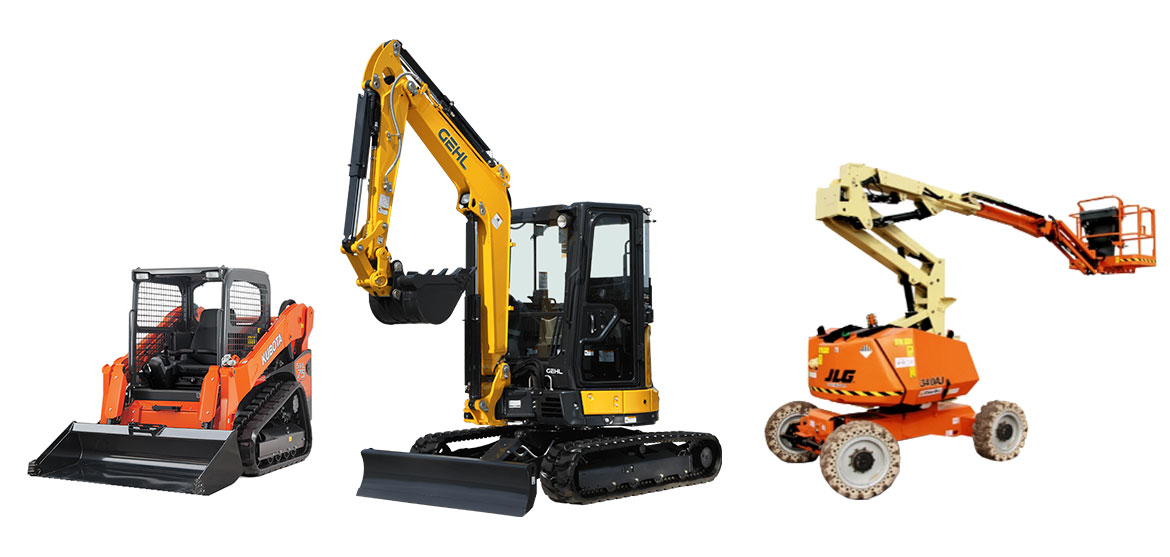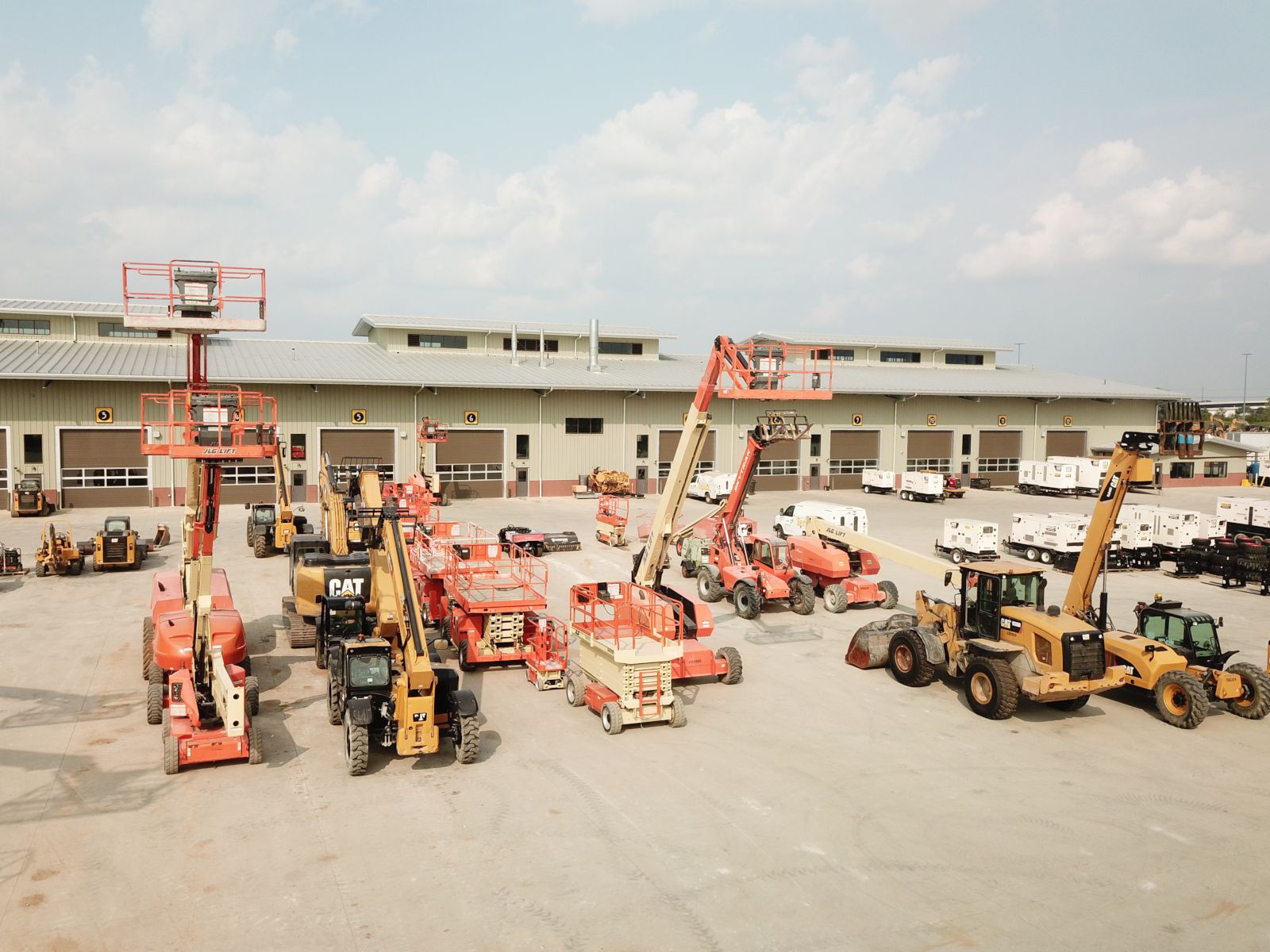Equipment Rental Company: Your Resource for All Sorts Of Machinery
Equipment Rental Company: Your Resource for All Sorts Of Machinery
Blog Article
Optimize Your Spending Plan by Understanding the Prices Connected With Construction Tools Leasings
Comprehending the full extent of prices connected with building and construction tools leasings is crucial for maximizing your spending plan. While the preliminary rental charge may seem simple, countless additional expenditures-- such as transportation, gas surcharges, and maintenance-- can promptly gather, affecting your financial preparation. Being conscious of different charges and the complexities of rental agreements can help avoid unexpected monetary burdens. What approaches can be utilized to successfully manage these expenses and guarantee a much more effective rental experience?
Summary of Rental Costs
When taking into consideration building equipment leasings, understanding the connected costs is vital for effective budgeting and task planning. Rental prices can vary significantly based upon several aspects, consisting of devices kind, duration of leasing, and area. The preliminary rental cost typically mirrors the devices's market need and its linked operational abilities, affecting the overall cost.
Along with the base rental rate, supplementary prices may develop, such as transport charges, gas additional charges, and upkeep costs. It is necessary to make up these extra costs to properly assess the overall cost of leasing equipment. The rental period can affect rates; longer rentals might qualify for affordable prices, while short-term leasings could sustain greater everyday charges.

Breakdown of Rental Prices
A thorough understanding of rental rates is crucial for contractors and task managers aiming to optimize their budget plans. Rental prices for building and construction devices usually are composed of several parts, consisting of base rates, time-based costs, and usage fees.
Base rates are the core fees connected with the service of the tools, often established by the kind and dimension of the machinery. These prices can vary significantly, affected by elements such as devices need, accessibility, and local market fads. Time-based fees, which might be daily, weekly, or monthly, serve to suit different job timelines and rental durations.
Furthermore, rental rates may include usage fees, which are applicable when equipment is made use of beyond a specified limit, making sure that the rental firm can account for wear and tear. Seasonal demand variations can also influence rental prices, with peak construction periods typically regulating greater prices.
In addition, recognizing the rental company's policies regarding maintenance and insurance coverage can give further understanding into the total cost framework. By examining these components, specialists can make informed decisions, guaranteeing the option of rental equipment straightens with both task demands and budget plan restrictions.
Extra Charges to Consider
Understanding the details of extra charges is vital for contractors to handle their general service costs effectively. Beyond the basic rental prices, various extra fees can substantially influence the total price of equipment rental. These costs commonly consist of shipment and pick-up fees, which can differ based on distance and logistics included in delivering the tools to and from the work website.
Moreover, some rental business might check this site out impose fuel surcharges if the equipment is returned with much less gas than when rented out. It is additionally necessary to know potential cleaning charges, particularly for specific tools that requires extensive upkeep after usage.

Completely examining the rental arrangement and making clear these additional charges ahead of time can aid professionals ensure and stay clear of unanticipated costs that spending plans stay undamaged throughout the job lifecycle.
Repair And Maintenance Costs
Normal upkeep and repair work expenditures are typically ignored variables that can considerably influence the general price of construction tools leasings. When leasing tools, it is crucial to consider not only the rental costs but likewise the potential prices related to maintaining the machinery in optimal operating condition.
Lots of rental business include standard maintenance as component of the rental agreement; nonetheless, extra unanticipated breakdowns or substantial repairs can cause added expenditures. It's vital to evaluate the rental agreement thoroughly to recognize what maintenance services are covered and what responsibilities fall on the tenant.
Moreover, equipment that is not well-kept can lead to inefficiencies on the task website, potentially enhancing and creating delays task costs. To reduce these risks, it is a good idea to conduct normal examinations and preserve open communication with the rental provider concerning any concerns that develop during use.
Insurance and Responsibility Expenses
Insurance policy and liability expenses are crucial elements that can dramatically affect the overall expenditure of building tools rentals (construction equipment rentals). These prices ensure that both the rental firm and the client are secured from prospective economic losses arising from accidents, damages, or burglary during the rental duration

In addition, customers should be conscious of any type of deductibles or exclusions in the insurance coverage, as these can impact potential out-of-pocket costs. Recognizing the terms of any type of insurance policy protection is crucial to avoid unforeseen prices. Inevitably, budgeting for insurance policy and liability costs can aid make sure a smoother rental experience and shield against monetary dangers connected with building tasks.
Final Thought
In verdict, an extensive understanding of the prices associated large equipment rental with building and construction equipment leasing companies construction devices rentals is necessary for reliable budget monitoring. Inevitably, informed decision-making pertaining to equipment rentals adds to the overall success of building and construction undertakings.
Rental prices can differ considerably based on several variables, consisting of tools kind, period of service, and place (scissor lift rental). The rental period can influence prices; longer services may certify for reduced rates, while short-term rentals could incur higher daily fees
By conducting thorough research and involving with reputable rental companies, specialists can effectively browse the complexities of rental rates, eventually optimizing their monetary resources.
Past the typical rental rates, different extra costs can substantially impact the total price of equipment leasing. Rental business usually offer responsibility insurance that covers injuries to third parties or damage to residential or commercial property, while tools damages insurance can cover the cost of fixings or replacement if the leased tools is damaged.
Report this page